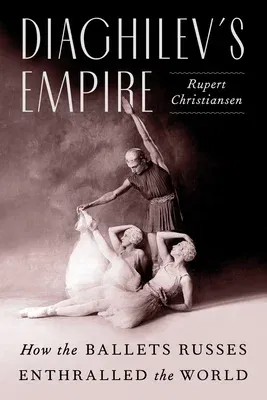A Best Book of the Year at The New Yorker and The Telegraph
"Amusing and assertive . . . [Christiansen's] delight is
infectious." --Alexandra Jacobs, The New York Times Book Review
Rupert Christiansen, a renowned dance critic and arts correspondent,
presents a sweeping history of the Ballets Russes and of Serge
Diaghilev's dream of bringing Russian art and culture to the West.
Serge Diaghilev, the Russian impresario and founder of the Ballets
Russes, is often said to have invented modern ballet. An art critic and
connoisseur, Diaghilev had no training in dance or choreography, but he
had a dream of bringing Russian art, music, design, and expression to
the West and a mission to drive a cultural and artistic revolution.
Bringing together such legendary talents as Vaslav Nijinsky, Anna
Pavlova, Igor Stravinsky, Pablo Picasso, and Henri Matisse, this complex
and visionary genius created a new form of ballet defined by artistic
integrity, creative freedom, and an all-encompassing experience of art,
movement, and music. The explosive color combinations, sensual and
androgynous choreography, and experimental sounds of the Ballets Russes
were called "barbaric" by the Parisian press, but its radical style
usurped the entrenched mores of traditional ballet and transformed the
European cultural sphere at large.
Diaghilev's Empire, the publication of which marks the one hundred
fiftieth anniversary of Diaghilev's birth, is a daring, impeccably
researched reassessment of the phenomenon of the Ballets Russes and the
Russian Revolution in twentieth-century art and culture. Rupert
Christiansen, a leading dance critic, explores the fiery conflicts,
outsize personalities, and extraordinary artistic innovations that make
up this enduring story of triumph and disaster.

